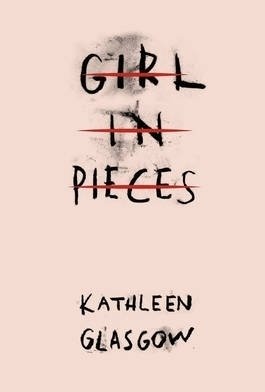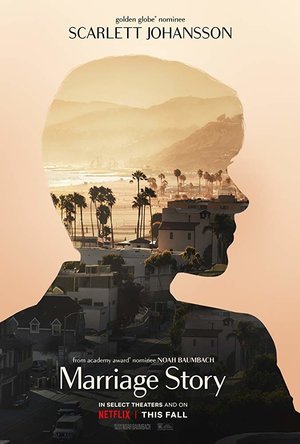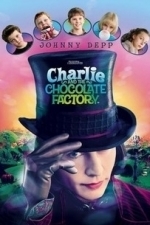Heather Cranmer (2721 KP) rated Girl in Pieces in Books
Jan 29, 2019
The plot for Girl in Pieces is so raw yet it is beautifully written. The story starts out with Charlie at Creeley, a mental hospital because she's a cutter, and the last time she cut, she cut pretty bad. At first, she is a selective mute, but eventually, she starts talking again. We learn that Charlie's had a pretty bad life. She's been homeless, assaulted, pretty much lost her best friend, had a horrible home life and other things. When the money for her stay at Creeley runs out, Charlie is thrust back into the real world much earlier than expected. She's left to fend for herself. She moves out to Arizona to be with her friend and crush, but things don't turn out as planned. Charlie must learn to survive and heal on her own or risk losing herself once again. Girl in Pieces felt so relatable and so true to life, like it could happen to anyone at any time.
The characters in Girl in Pieces all felt very real and exposed. They were written perfectly and felt like people I know and have known. It was interesting and eye opening to experience Charlie's journey every step of the way from the highs and the lows. There were so many times I wanted to be Charlie's friend so I could support her and let her know when she was making a mistake. I wanted to be there for her after the mistakes had been made and let her know that every day is a new chance to start over. I loved Blue and her joking attitude. Riley was an interesting character. I wanted him to turn out good. I wanted him to get better for Charlie and for himself. Linus was also a very amazing character. I also loved how real Julie was. Every single character in this book played a great part in Charlie's life, and I loved how well written each and every one of them was.
The pacing for Girl in Pieces starts out really strong which I enjoyed. It does slow down a bit after Charlie gets out of the hospital, but it's still flows along at a good pace. There are a few places where the book does get a bit too slow, but it quickly picks up not too much later.
Girl in Pieces is a very raw, gritty, and dark book, so there are a lot of triggers. The whole book could be a possible trigger. Triggers include self harm, self mutilation, cutting, drug use, underage drinking, drinking, death, suicide, violence, physical abuse, emotional abuse, mental illness, dark thoughts, profanity, and sexual acts and references.
Overall, Girl in Pieces is a great read. It's very dark, but it is real and written so well with fantastic characters. I would definitely recommend Girl in Pieces to those aged 16+ who love a dark gritty read.

United!: The Comic Strip History
Book
From the formation of the club as Newton Heath LYR through to the Championship in 2012/13 the...
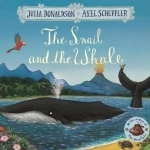
The Snail and the Whale
Julia Donaldson and Axel Scheffler
Book
"How I long to sail!" said the tiny snail. One little snail longs to see the world and hitches a...
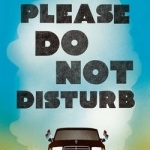
Please Do Not Disturb
Book
The funny, disturbing and deeply affecting new book by the acclaimed author of Terms & Conditions...
Lucy Buglass (45 KP) rated Marriage Story (2019) in Movies
Nov 7, 2019
The film follows Nicole (Scarlett Johansson) and Charlie (Adam Driver) as they’re going through the turbulent divorce period. The couple share a young son Henry, who naturally causes complications for the two when it comes to custodial agreements.
Marriage Story opens with two gorgeous monologues about what the two characters love about each other, both of which are enough to make you cry a mere few minutes into the film. This contrasts very well with the present day, where they’re both struggling to make their marriage work.
It would have been very easy for Noah Baumbach to encourage the audience to pick sides, leaving them to subconsciously ‘root’ for either party to do well in the scenario. But remarkably that’s not the case, as it’s a very unbiased film that lays everything out on the table for us to see. Each messy, complicated detail is shown to us, and we end up sympathising with both.
One thing I really enjoyed about Marriage Story is the way Baumbach criticises some of the ridiculousness associated with divorce, especially when it comes to legal battles. Nicole reluctantly turns to ruthless lawyer Nora Fanshaw (Laura Dern), who is honest about the lies that have to be told in order to get through this.
Dern’s performance is hilarious but also highlights some of the inequalities and utterly baffling scenarios that happen when picking up a legal case. I wasn’t aware of any of them so it was quite a shock.
Watching the film is excruciating in places, but that’s a compliment on how raw and honest it is. It seems wrong for Charlie and Nicole to have to say and do certain things, all dictated by their respective lawyers. A clean break just isn’t possible when a child is involved.
It becomes even more complicated for the couple when Nicole decides to move back to Los Angeles, 2,789 miles away from New York City where she and Charlie used to reside. This creates a very literal distance between them, and causes problems with the battle for custody and Henry’s wellbeing.
Whilst there are many scenes which will reduce you to tears, Marriage Story has some comedic elements to lighten the mood, especially when it comes to Nicole’s family and how they react to the news of the divorce.
The two central performances in Marriage Story really are exceptional, and you become invested in the lives of people you don’t even know. One dramatic scene between Charlie and Nicole in particular had me openly sobbing, as it was full of contempt instead of love. Many of us can react to that exchange in a failing relationship, and it hurts.
If you want a very honest look at what it’s like to go through a divorce, then Marriage Story is just that. This isn’t the kind of film that sugarcoats anything and instead takes its audience on an emotional rollercoaster from start to finish.
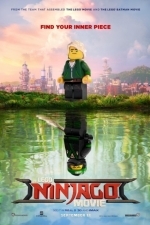
The LEGO Ninjango Movie (2017)
Movie Watch
A new animated adventure in Warner Bros. Pictures' LEGO: franchise, "The LEGO NINJAGO Movie' stars...
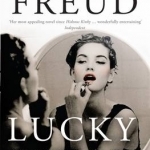
Lucky Break
Book
It is their first day at Drama Arts, and the circle of huddled, nervous students are told in no...
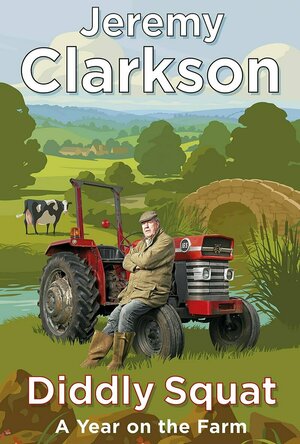
Diddly Sqaut
Book
Welcome to Clarkson's farm. An idyllic spot offering picturesque views across the Cotswolds,...
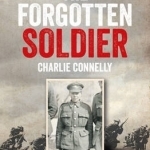
The Forgotten Soldier: He Wasn't a Soldier, He Was Just a Boy
Book
Bestselling author Charlie Connelly returns with a First World War memoir of his great uncle, Edward...
TheDefunctDiva (304 KP) rated Charlie and the Chocolate Factory (2005) in Movies
Sep 27, 2017
This is the story of Charlie Bucket, an impoverished but genuinely good-natured child. His dream is one of millions: to win a Golden Ticket, and tour Willy Wonka’s chocolate factory in the hopes of obtaining an even bigger prize. If this plot sounds familiar, it’s because you’ve seen Willy Wonka and the Chocolate Factory, or have read the book. I profess my ignorance, for I haven’t read the book Roald Dahl wrote, and therefore have no idea which movie version adheres more strictly to the original text.
Let’s move on by more closely examining Burton’s version. Despite some of the world’s most recalcitrant children winning the four other tickets, Charlie lucks out and becomes the recipient of the last Golden Ticket. This brings great joy to his family and even makes the bed-ridden Grandpa Joe ambulatory again. I love Charlie’s family, especially because his Dad works in a toothpaste factory but everyone in the family has nasty teeth.
The glorious day of the tour arrives and each child shows up with a parental or grandparental guardian. They are introduced first to Willy Wonka by means of a puppet show, which ends in a glorious and unintentional fire. With the smoldering puppets dying disturbingly in the background, Wonka appears with cue cards, giving the impression that the man has no idea how to socially interact. The group then enters the factory.
The first child to be eliminated from the contest is Augustus Gloop. The group has been given free reign of a room made entirely of candy. Augustus cannot resist the lake of chocolate, and he falls in. He is sucked up a tube that leads to the fudge room. Then the Oompa Loompas appear and perform a song engineered for this particular predictable tragedy.
The Oompa Loompas in Burton’s version are short, and they do not have orange hair, but they all have the same face and body. Deep Roy, the actor portraying the Oompa Loompas, deserved an Oscar for effort in my book, for the special features indicate how very involved he was with this production. The songs sung by the Oompa Loompas varied significantly from those in the older version. In fact, I enjoyed how each song of admonishment involved a specific genre of music.
Next Violet Beauregard, the competitive one, is turned into a blueberry by chewing gum. And then we have the case of the sad and supremely spoiled Veruca Salt, who ends up getting thrown down a garbage chute by some very judgmental and highly trained squirrels. After each young lady has been expelled from the contest, the Oompa Loompas say adieu with a musical number.
Throughout the film, Wonka has flashbacks about his father. It seems the elder Wonka was a dentist, and he forbade the young Willy to eat candy. Several scenes show Willy Wonka defying the will of his father, which ultimately led Willy to be a world-renowned chocolatier. Though it was nice to have this subplot as an explanation for some of Wonka’s erratic behavior, I found that I like Gene Wilder’s portrayal of Willy Wonka better. He was whimsical and strange, but the film and the actor seemed to offer no explanation as to how he got that way.
Mike Teavee, a young boy with the attention span of a gnat on amphetamines, is the last of the factory’s victims. He decides to teleport himself into a television screen, which I’m sure seemed like a good idea at the time. Teavee is shown in peril as an Oompa Loompa flips the channels. Now incredibly small, Wonka decides that the best remedy for Mike is the taffy pulling machine.
Charlie is the only child left, and Wonka ushers Charlie and Grandpa Joe into the glass elevator. According to the button, they are going up and out. Indeed, they do, eventually stopping when they crash through the roof of the Bucket house. The grand prize is revealed: Willy Wonka is giving Charlie the factory. This becomes impossible when Wonka forces Charlie to choose between factory and family. Eventually, Wonka reconciles his Daddy issues and allows Charlie’s family to stay at the factory.
The visual effects in this film were amazing. As mentioned previously, Deep Roy was incredible as the face of the many Oompa Loompas. I thought the child actors in this film were also impressive in how they perfectly captured their respective vices. Overall, this was a good film. And yet I still miss moments from the older film, especially the poem with “the grisly reaper mowing.” Call me sentimental…
